With political instinct and a conservative agenda
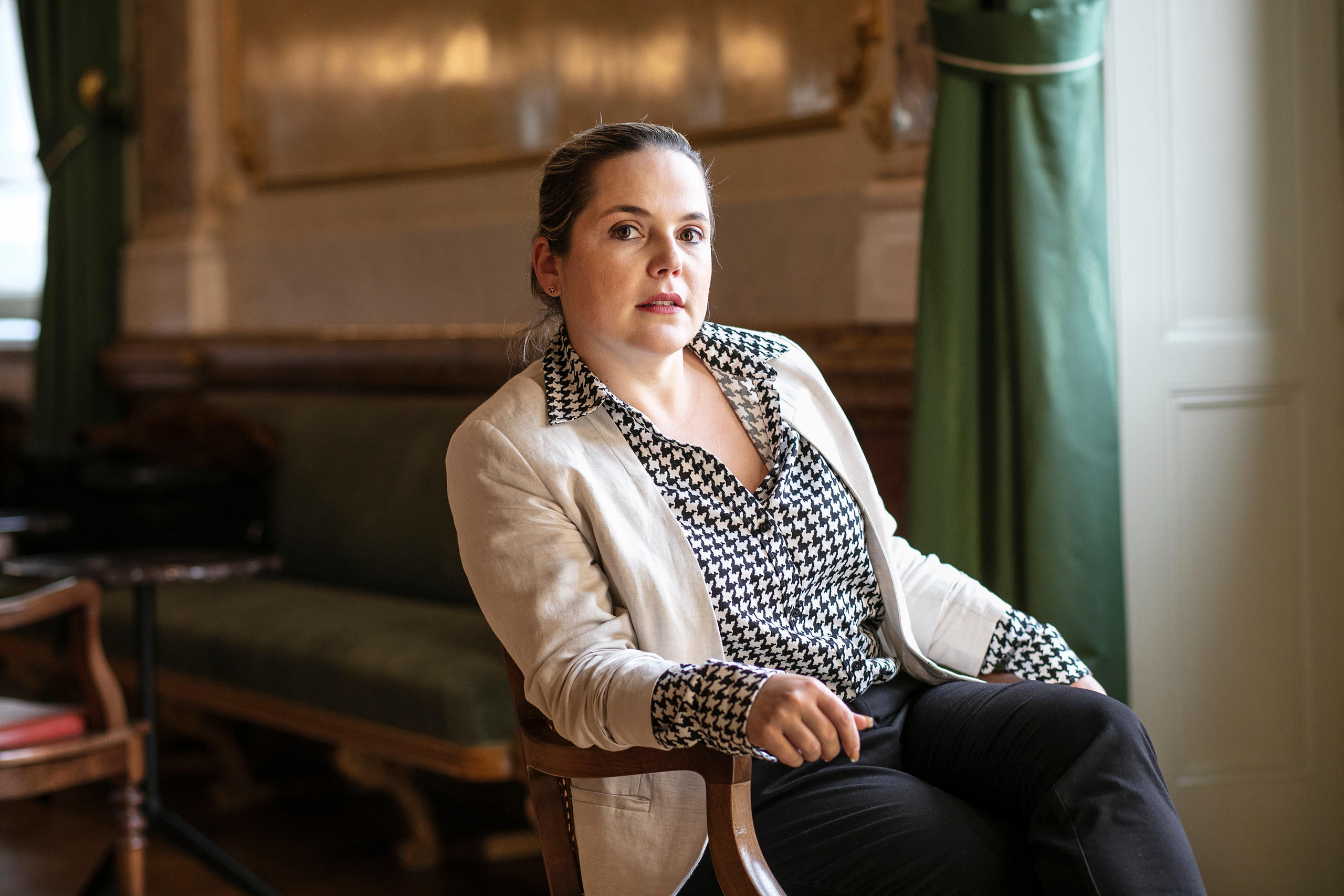
Martina Bircher has pledged to pursue a crackdown on abuses of asylum and welfare fraud. She says she has a strong sense of justice; critics see her as an archetypal hardliner.
The first contact with the newly elected representative reveals a startling sharpness of perception. In the midst of arranging a future date for a half-hour interview, Bircher glances at the notepad of this reporter and, without being asked, corrects an inaccuracy in the notes.
Ten days later, during the December session of parliament, she comes to the meeting well prepared, her answers flowing without hesitation.
“I’m a fighter. I want to get things done, to tackle abuse where needed,” says Bircher. A reputation as a law and order hardliner, especially on asylum and social security issues, precedes the 35-year-old.
As a member of the Aargau cantonal parliament and the local government of Aarburg – a small town 50km west of Zurich – Bircher made headlines beyond her home region last year with calls for cuts in welfare payments and strict birth control measures, notably for families of asylum seekers.
Last October, Swiss citizens elected the most female parliament in the country’s history. Although parity has not yet been achieved, women now account for 42% of members of the House of Representatives. To mark the occasion, swissinfo.ch is presenting the profiles of up to eight newly-elected parliamentarians from different parties.
The motivation behind her controversial proposal? Figures showing record numbers of welfare beneficiaries in Aarburg – the highest in the canton.
Tackle abuse
Bircher, a young mother herself, says she is politically driven by a strong sense of justice. “I want to set right what is wrong. And if I see abuse, I want to tackle the problem at a political level.”
Possibly because she’s a woman of only 1.6m, she has been underestimated more than once in life, she says. An experience from her school days also seems to have marked her.
“A teacher told me to my face that I was not intelligent enough to be anything other than a loving housewife and mother.”
This prompted a strong reaction, and she’s now proud to work as a finance specialist for Swiss Post, while at the same time being engaged in politics and being the mother of a young son.
She says she wants to remain authentic, to do things her own way and to work step-by-step. Asked about possible role models, Bircher says: “I will follow my heart, stay true to myself.” Nevertheless, she is fascinated by the young conservative government leader from neighbouring Austria, Sebastian Kurz.
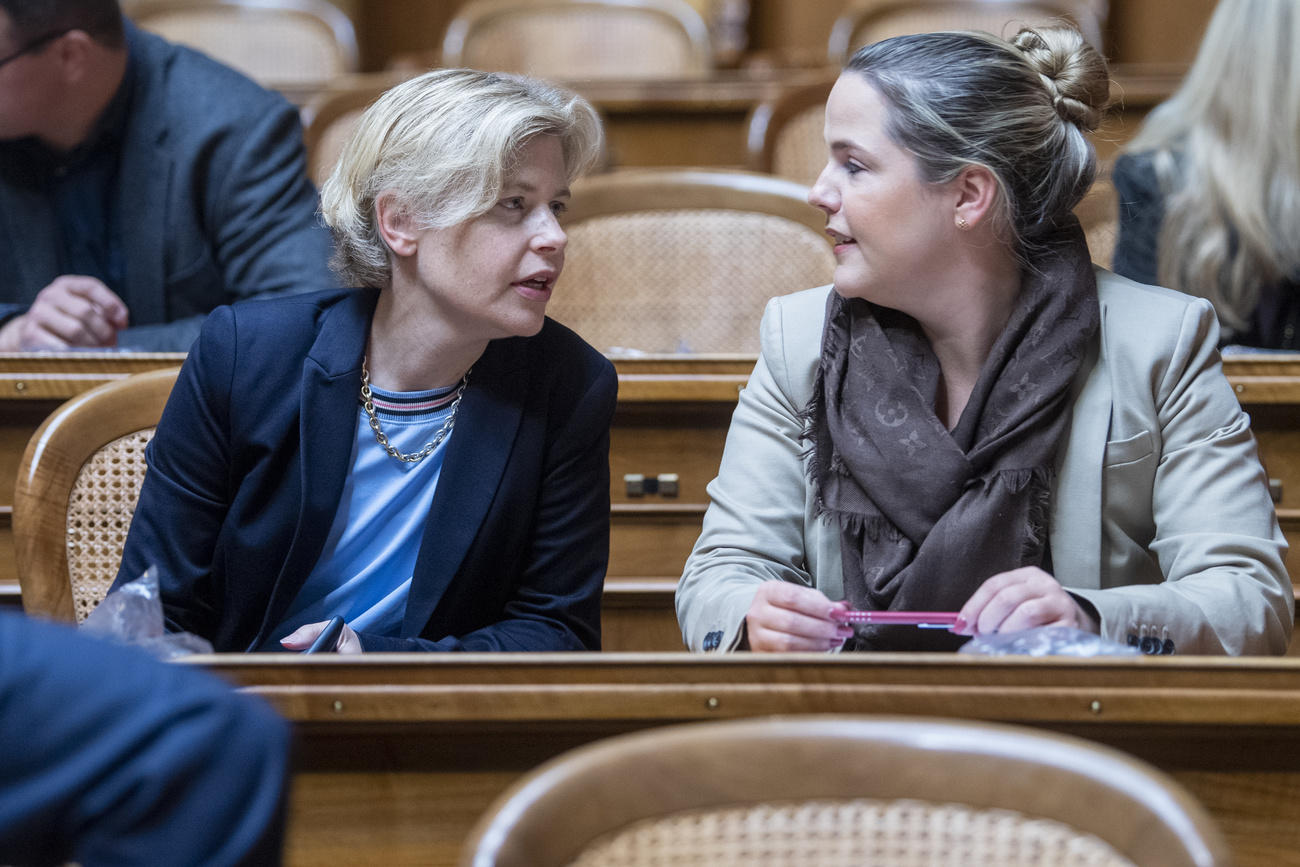
Asked about her own ambitions, her answer is not very different from that of many other politicians: “So far, much of my political career has come as a series of coincidences. I think politics isn’t about personal ambitions but about how my values can help improve things for the country.”
Political instinct
If Bircher is seen as a young hopeful within her own party, some of her political opponents from the other side of the spectrum criticise her style as blunt and bad-mannered. They acknowledge that she has a highly developed political instinct but describe her as a cold tactician who uses the media for her own ends. They also consider her as a politician eager to implement at a local level the ideas from the national headquarters of her right-wing party.
Another former colleague from the cantonal Aargau parliament is more benevolent. For her, Bircher has been “a breath of fresh air – young, ambitious, rather impetuous” but with a sense for what is realistic in politics. She is convinced of herself and her goals and sets the bar high.
She doesn’t beat about the bush, and she is aware of her own qualities, says another female local politician from a centre-right party.
First session
Bircher’s early involvement in politicsExternal link began with her joining the right-wing Swiss People’s Party at the age of 19 without obvious career plans, family links or outside help.
Elected to the local government of the town of Aarburg in 2014, of Bircher has been in charge of welfare, health and youth issues.
She was a member of the parliament of canton Aargau between 2017 and 2019.
In October 2019, she was elected to the Swiss parliament.
Some 15 years later, having gained practical experience as a member of a local executive and a cantonal legislative, she is now making her first steps on the political stage at a national level.
She says she had doubts whether she was up for the task and was overwhelmed by the bi-cameral parliamentary procedures which struck her as more complex than what she had known so far at the cantonal level.
Nevertheless, she soon got involved in debates about healthcare and the legalisation of cannabis, even while her expertise areas are welfare and asylum.
Bircher also says she has “one or two ideas that are likely to cause media furore.” She would like parliament to impose restrictions on social security payments, notably for refugees who transfer some of the benefits as remittances to their families in other countries, as she specified in an interview with the local Zofinger Tagblatt newspaper.
Political profile
The chart below shows Bircher’s political profile highlighting her restrictive stance on immigration and the welfare state – rather she champions a lean state, law and order, and a liberal economic policy.
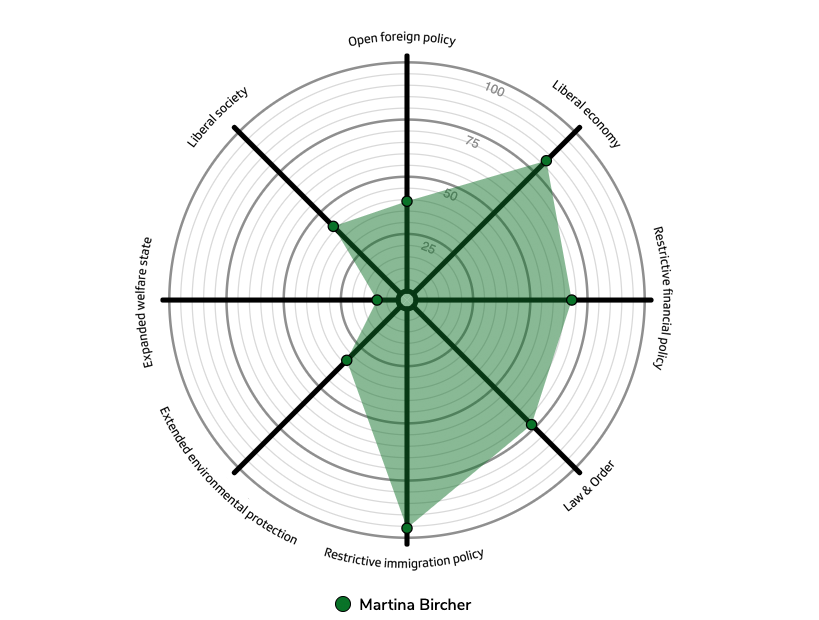
In concrete terms: Bircher is in favour of raising the retirement age of women from 64 to 65 but is against the introduction of a CO2 tax currently under discussion in parliament.
“Citizens have their own individual responsibility towards the environment. No further state intervention is necessary and voluntary measures are already in place,” she says.
She also argues that the state could consider conscription for women, not only for men. “Not necessarily as a member of the armed forces, but in social work or civil protection services,” she says.
E-voting is another issue that’s high on the political agenda, and not only in parliament – it also concerns Switzerland’s system of semi-direct democracy.
Bircher agrees with critics that current online systems are too vulnerable to hacker attacks. “E-voting is a good idea in principle, and expat Swiss citizens would certainly benefit, but the risks are too high.”
However, she categorically rejects calls to revoke the political rights of Swiss citizens living around the world since they pay no taxes in Switzerland, or even to limit the right to second or third generation emigrants.
As an honorary member of the People’s Party chapter in Spain, she says: “They would never forgive me if I came out in favour of such an idea.”

In compliance with the JTI standards
More: SWI swissinfo.ch certified by the Journalism Trust Initiative

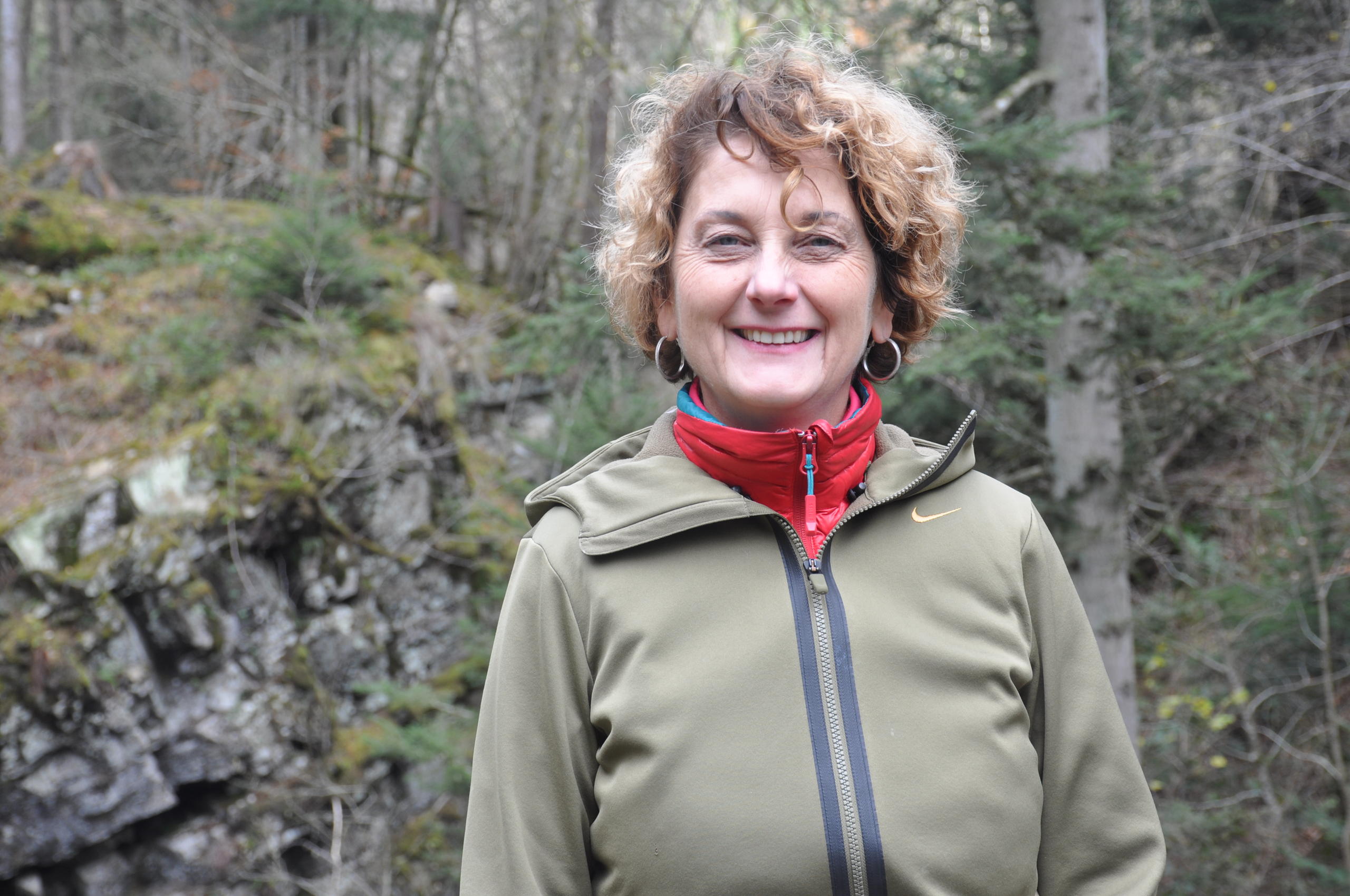
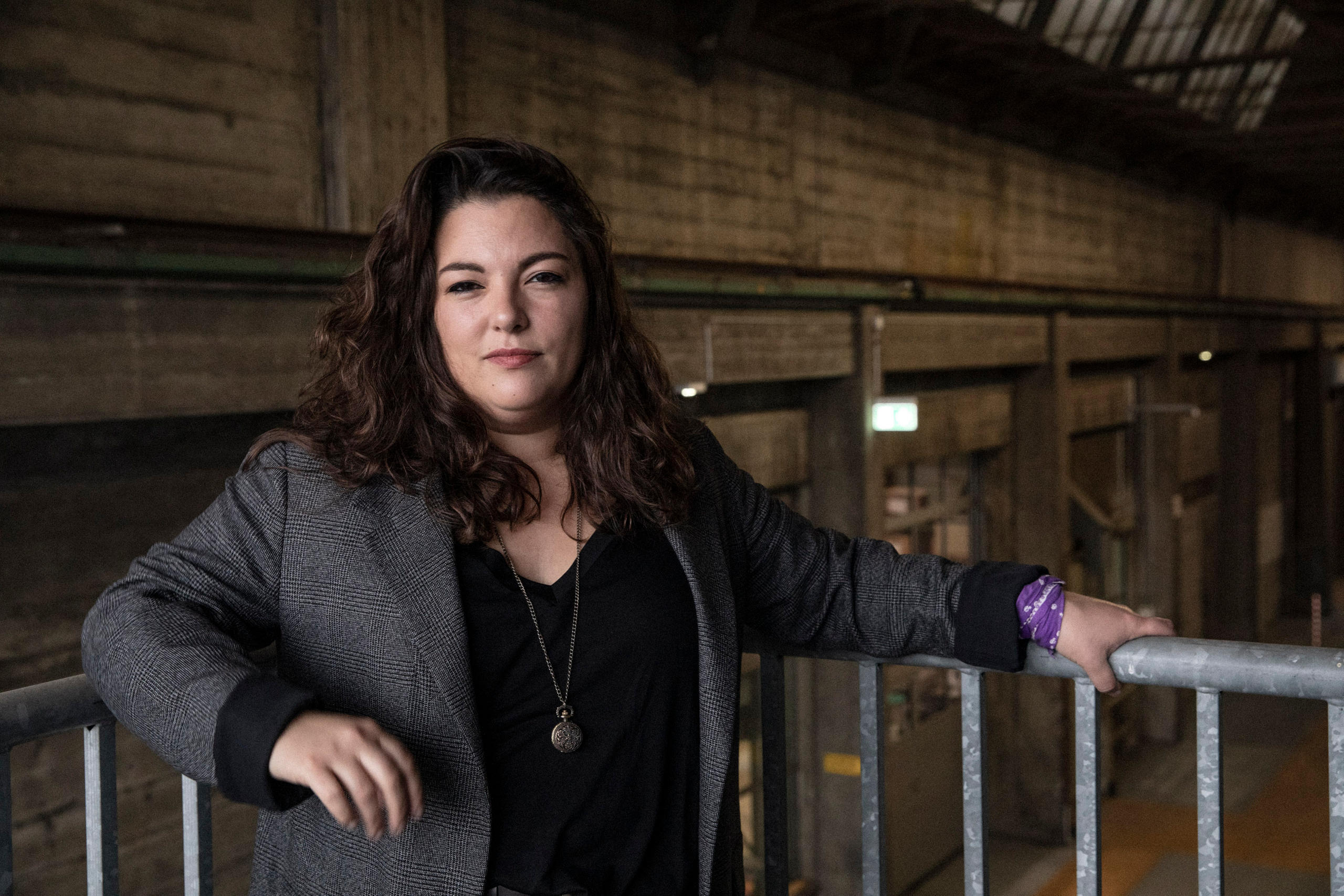
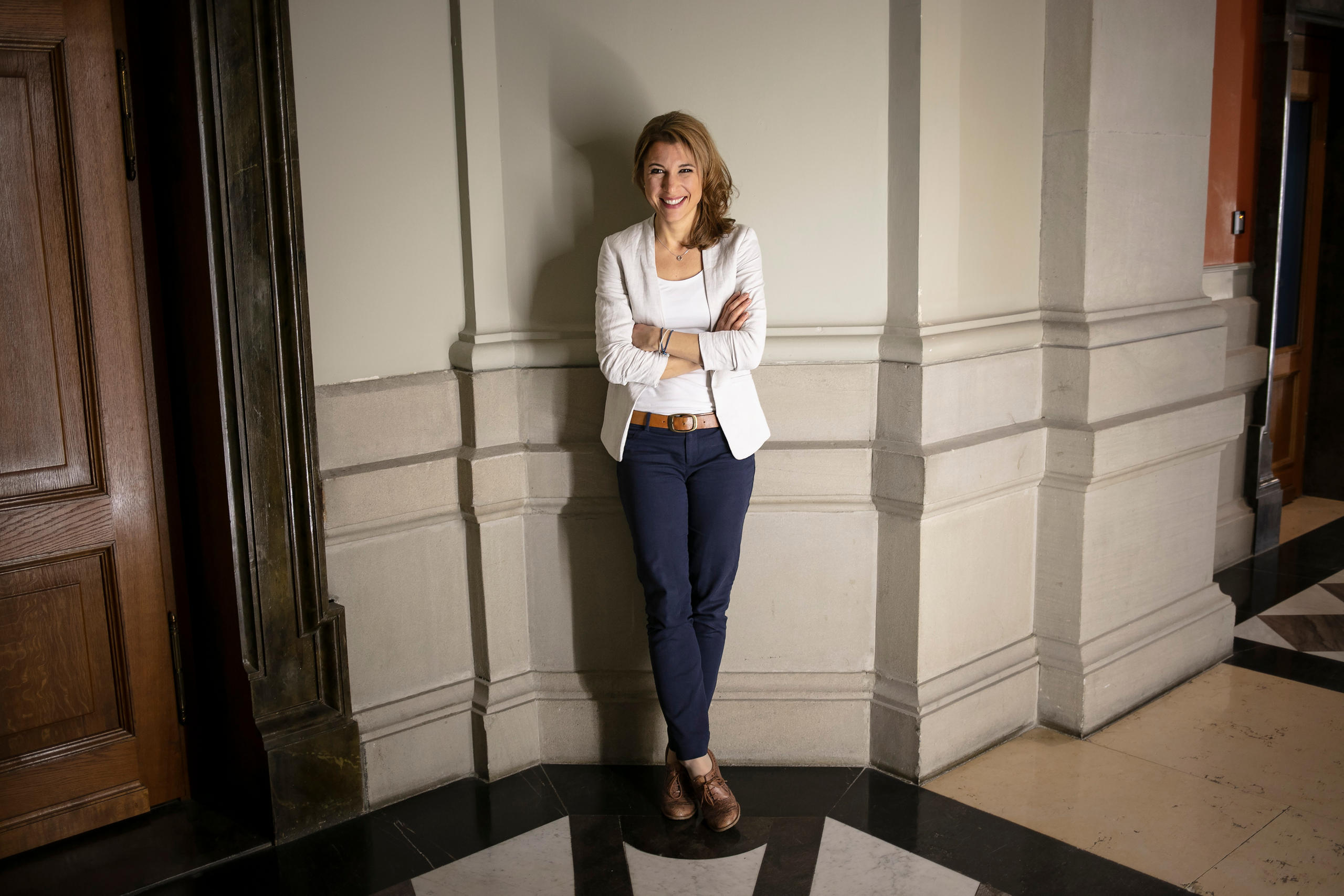
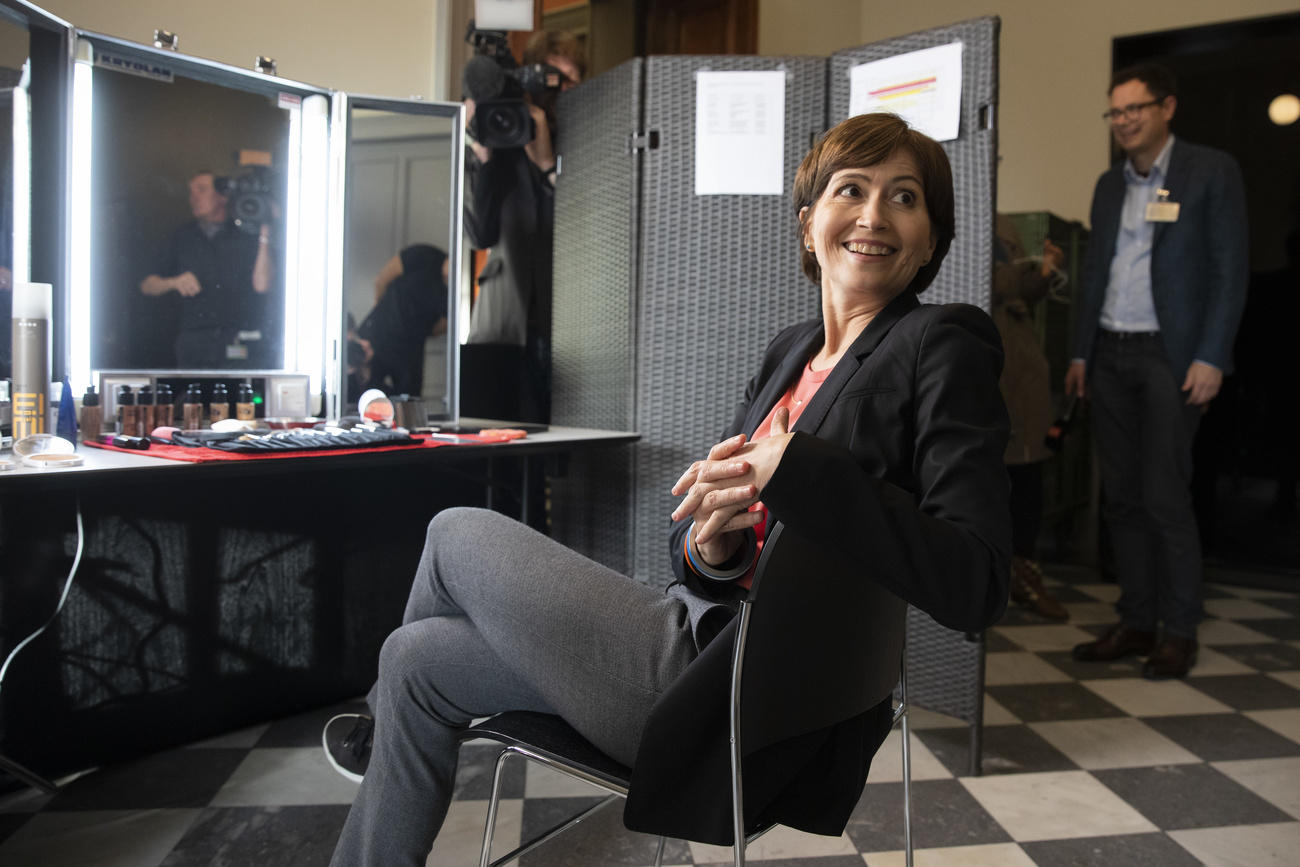
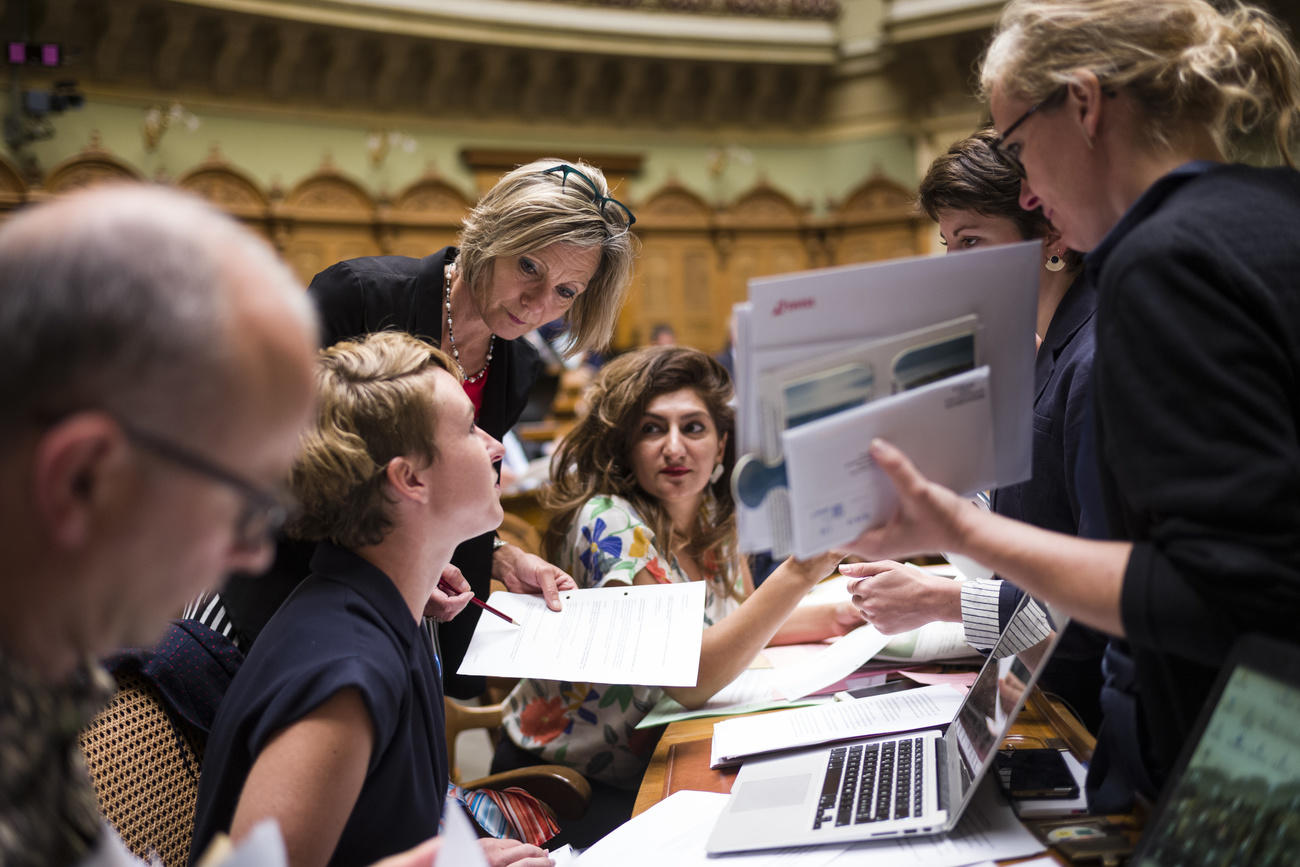
You can find an overview of ongoing debates with our journalists here. Please join us!
If you want to start a conversation about a topic raised in this article or want to report factual errors, email us at english@swissinfo.ch.